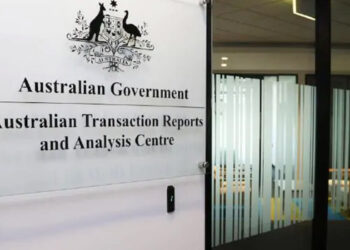As geopolitical tensions flare across the globe, the financial industry is capitalising on the surge in defence spending by launching a new wave of exchange-traded funds (ETFs) focused on companies involved in national security, military technology, and defence infrastructure.
In recent months, there has been a noticeable pivot in the investment community. While cryptocurrencies once dominated headlines with the launch of various crypto-focused ETFs, the rapidly changing geopolitical landscape has shifted investor interest towards defence ETFs.
This move reflects a broader response to escalating global instability, including ongoing conflicts such as the Russia-Ukraine war, rising tensions in the Middle East, disputes in the South China Sea, and increasing concerns over cyber security threats.
A recent report from the Stockholm International Peace Research Institute (SIPRI) indicated that global military spending increased by 7 per cent to US$2.43 trillion in 2023, the largest annual rise since 2009, with projections suggesting it could reach US$3.1 trillion by 2030.
Speaking to InvestorDaily, Shane Oliver, chief economist at AMP, said: “The peace dividend of the 1990s started to give way to a new Cold War in the years just before the pandemic but unfortunately, it’s intensified since as evident by the conflict in Ukraine and arguably the Middle East. It’s also evident in the reversal of globalisation and trade wars that started under Trump 1.0.”
“This is now seeing a pickup in defence spending benefiting arms makers, many of which are listed on share markets. At the same time, investors are looking for a hedge against increased military conflict that may impact other investments,” Oliver said.
Just last week, Global X brought its Defence Tech ETF (ASX: DTEC) to Australian shores, providing exposure to cutting-edge technologies driving the future of warfare, including robotics, cyber security systems, and artificial intelligence.
VanEck, which launched its own defence ETF (ASX: DFND) in September, was the first to introduce a defence-focused product to the ASX, underscoring the sector’s growing importance considering rising global instability.
This week, Betashares joined the trend, unveiling its Global Defence ETF (ASX: ARMR). The fund provides access to a portfolio of up to 60 companies that derive more than 50 per cent of their revenue from the defence industry.
The surge in defence ETFs reflects a reality that many investors are beginning to accept – global military spending is on the rise, and it shows no signs of slowing.
VanEck’s Asia-Pacific CEO, Arian Neiron, acknowledged this shift, noting: “Unfortunately, the world has changed since the days of celebrating the peace dividend. Where countries used to extol the economic benefits of reduced defence spending, they’re ramping up military expenditure.”
Betashares CEO Alex Vynokur echoed this sentiment, highlighting the “strong projected growth in revenue and cash flows” for many companies within the ARMR portfolio, driven by increasing global defence spending.
At the same time, investors must be cautious, Oliver urged.
He warned that while the launch of defence-focused ETFs “makes sense” and is “a sign of the times”, investors “just need to be wary that as with the first Cold War, it will wax and wane over time, leading to lots of volatility in defence stocks”.
“They need to be wary about buying after they have already had a big run-up and may be getting overvalued and over loved.”







